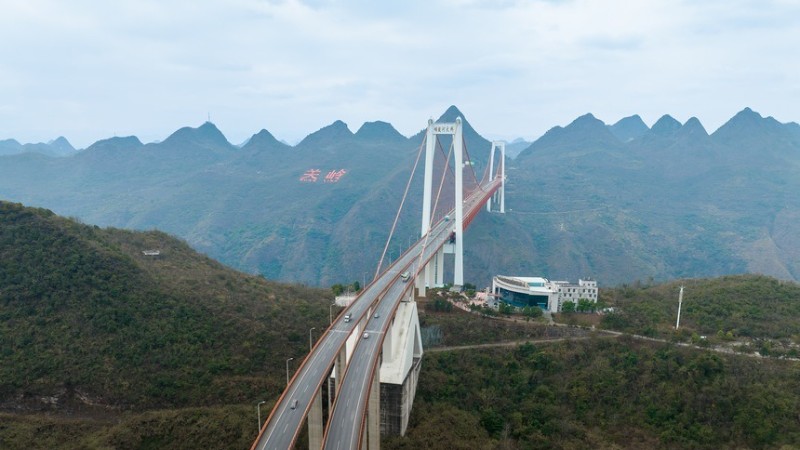Interview: U.S. politicians, Taiwan authorities should act responsibly to avoid escalating tensions in Taiwan Strait -- U.S. ex-diplomat
GENEVA, April 20 (Xinhua) -- A former U.S. diplomat, who contributed to the three China-U.S. joint communiques, urged the Democratic Progressive Party (DPP) authorities in Taiwan and U.S. politicians to act responsibly and in accordance with the joint communiques, a quintessential guardrail in China-U.S. relations, lest mistrust and tension spiral out of control.
In a recent virtual interview with Xinhua, Chas Freeman, a former U.S. assistant secretary of defense for international security affairs who has served as the principal interpreter for then-U.S. President Richard Nixon's ice-breaking trip to China in 1972, chastised the DPP authorities for provoking tension across the Taiwan Strait.
For Freeman, the DPP authorities have a lesson to learn from then-U.S. House Speaker Nancy Pelosi's visit, namely, they should refrain from political theater abetted by American politicians with the objective to provoke the mainland.
Freeman noted that the DPP authorities have orchestrated sophisticated and onerous lobbying efforts to influence U.S. opinions and to drive a wedge between the United States and China over the Taiwan question, with most Americans being kept oblivious.
He pointed out that the DPP authorities must exercise their agency prudently, and that it must not attempt to drag the United States into a confrontation with China because a China-U.S. conflict "would inevitably destroy Taiwan."
"I can say, having many friends in Taiwan, that many of them do not appreciate being used as a soapbox from which American politicians can shake their fists at the Chinese across the strait, this is exploiting them for domestic American political purposes. It is not helpful to them, still less helpful to the U.S.-China relations."
The Taiwan question eventually has to be solved between the two sides of the Taiwan Strait, and "if Taipei behaves irresponsibly, it will pay the price, but so will the rest of us, so I think it should be responsible," he added.
Having worked personally on the normalization of China-U.S. relations as a professional diplomat, Freeman opposes U.S. interference in the Taiwan question, noting that such involvement could radically alter its relationship with China.
As to why certain U.S. politicians and foreign policymakers express a willingness to clash with China over the Taiwan question, Freeman blamed it on their lack of knowledge about China-U.S. relations.
"They know nothing about the constraints that the United States and China worked out to make the Taiwan question not urgent, something that could be worked out among Chinese over time. This was the genius of the three (joint) communiques, to take the Taiwan question and remove it from U.S.-China relations, and place it back where it belongs, which is in interactions among Chinese on both sides of the strait. People don't know this," he noted.
Freeman reiterated that the China-U.S. relations we have today are built upon the U.S. ceasing to recognize the legitimacy of Taiwan authority, and the termination of U.S. defense commitment to Taiwan, and all these decisions are now being challenged by Washington's policy.
"I am very concerned about the dangers of that departure from the agreements we made 50 years ago. I think most Americans know nothing of the history of Taiwan or the Chinese civil war, don't understand that we are breaking our word, (and) don't understand the symbolism of this in terms of Chinese history," said the China hand, noting that revolutions events that happened in the 20th century in China "had the same objective of removing foreign spheres of influence from Chinese territory, uniting the country under a single authority, and restoring the dignity of China internationally, and all these things are bound up in the Taiwan question, make it a very emotional matter."
The former American ambassador impressed upon his compatriots the vital guardrail keeping the China-U.S. relationship afloat -- the three joint communiques.
"Those three (joint) communiques are not read, not remembered, they're not honored now by the United States, that means that there are no guardrails," he said, calling it a very dangerous situation that could lead to confrontation.
Photos
Related Stories
- "U.S. research" on China's e-commerce platforms unprofessional, irresponsible: MOC
- Taiwan ethnic minority delegation visits Beijing
- U.S.-China tensions feeding new wave of anti-Asian hate: LA Times
- Taiwan youth on Chinese mainland: Bonds will never break
- Mainland notice concerning space activities a customary practice: Taiwan Affairs Office
Copyright © 2023 People's Daily Online. All Rights Reserved.









